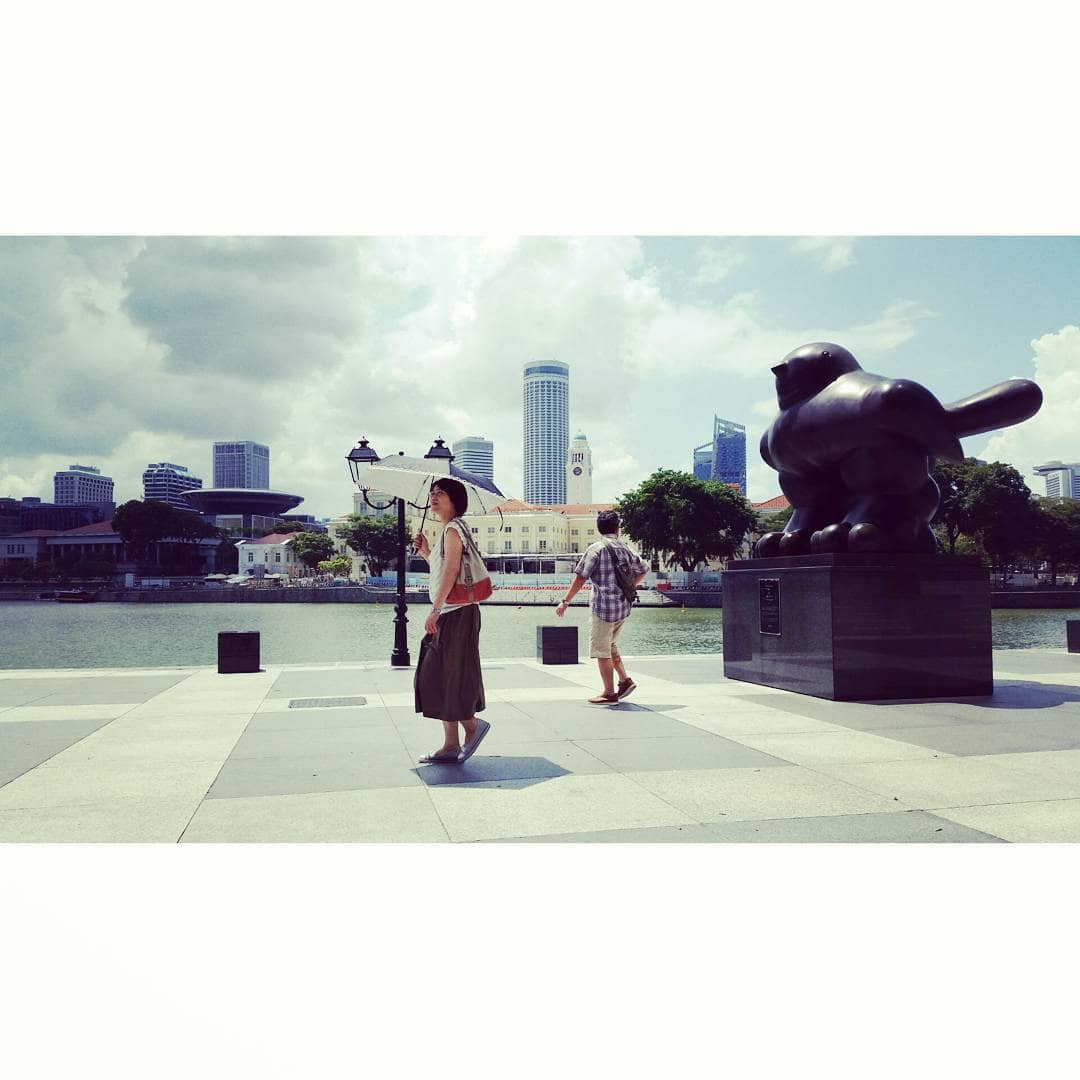How to Move to Singapore in 2024: Real-Life Tips for Professionals, Investors, and Entrepreneurs
Are you a driven professional looking to advance your career? An investor seeking fertile ground for your vision? Or an entrepreneur with bold aspirations ready to soar?
If you find yourself nodding in agreement to any of these questions, then Singapore could be the ideal place for you. This vibrant city-state, brimming with innovation and possibilities, warmly welcomes ambitious individuals like you.
However, before you start packing and scheduling your flight, let’s explore the practical aspects of making your dream of living in Singapore come true.
This article offers a detailed guide on how to move to Singapore, along with other helpful information. It’s based on the latest information from the Singaporean government and my own experiences as someone who has worked, registered a business, and regularly visits the country for various purposes.
Why Move to Singapore?
People from around the globe are drawn to Singapore for a multitude of personal or professional reasons. Some of the most frequently cited attractions include:
- Safety and Stability: With a stable political environment, minimal crime rates, and low corruption, Singapore provides a safe and secure living environment.
- World-Class Infrastructure: Efficient public transportation, clean and organized cityscapes, and excellent healthcare contribute to a high quality of life.
- Quality Education: Singapore’s world-class education system is a significant draw for families moving to the country.
- Multi-Cultural Society: Singapore’s diverse population creates a vibrant cultural scene with a blend of Asian and Western influences, offering rich experiences and exposure.
- Quality of Life: Singapore offers one of the highest quality of life in Asia, with clean streets, safe neighborhoods, and excellent public services.
For me, family ties were a major factor in my initial decision to relocate to Singapore a few years ago. Having relatives who were Singaporean citizens at the time provided support and guidance, easing my transition.
Moreover, I was firmly convinced that Singapore stands out as one of the premier Southeast Asian countries for working professionals, investors, and entrepreneurs.
Here are some specific reasons why:
Best Reasons for Working Professionals to Move to Singapore
1. Singapore Actively Woos Foreign Talent
In my view, no other Asian country is as welcoming to foreign talent as Singapore. This is evidenced by its proactive approach to launching initiatives and programs aimed at attracting skilled professionals or enabling eligible companies to employ more foreign workers.
Recent initiatives include:
- Overseas Network & Expertise (ONE) Pass: A new visa introduced by the government to attract high-achieving individuals from around the globe.
- Manpower for Strategic Economic Priorities (M-SEP) Scheme: Introduced in December 2022, M-SEP supports businesses contributing to Singapore’s strategic economic priorities and competitiveness by allowing them greater flexibility in hiring foreign workers.
- Post-COVID-19 Initiatives: In response to the global pandemic, Singapore has unveiled new initiatives to continue attracting and retaining top talent.

2. Plenty of Job Opportunities With Competitive Pay
Singapore is renowned for its abundant job opportunities and high salaries. According to a blog article, it ranks first in Asia for the highest average monthly salary (US$ 6K+), making it a financially attractive destination for relocation.
3. English Is Widely Spoken
Of all the Southeast Asian locations I’ve lived in, Singapore stands out as the ideal place for working professionals due to the widespread use of English. This facilitates work, business transactions, and everyday activities.
Best Reasons for Investors or Entrepreneurs to Move to Singapore
Similarly, Singapore offers a wealth of advantages that make it an attractive destination for both investors and entrepreneurs. These include:
- Thriving economy: Singapore boasts a booming economy with diverse industries offering ample job opportunities for skilled professionals across various sectors like finance, technology, and trade.
- Stable business environment: Singapore’s political stability and transparent regulations attract multinational companies and entrepreneurs, leading to a dynamic job market.
- Abundance of Business Opportunities: Singapore is known for its pro-business environment, making it a hotspot for expatriates and entrepreneurs.
- Tax incentives: Singapore’s tax-friendly environment attracts investors with various schemes and benefits, particularly for entrepreneurs and investors seeking regional expansion.
- Grants and Funding: Government grants and programs support research, innovation, and entrepreneurship, benefitting both local and foreign talent.
- Ease of Doing Business: Singapore consistently ranks high in global ease-of-doing-business rankings, with streamlined processes and government support for investors.
- Strategic Location: Singapore’s geographical position connects Southeast Asia with major global markets, facilitating trade and regional access.
In addition to these benefits, Singapore extends several schemes to aid entrepreneurs and investors, such as:
- Singapore Entrepreneur Pass (Entrepass): This scheme provides a one-year visa initially, which can be extended for up to two years if the business demonstrates progress. It aids in company incorporation, grants access to government support programs, and may pave the way to permanent residence (PR) based on the success of the business.
- Global Investor Program (GIP): This program grants PR status to the investor, their spouse, and dependent children. It allows for business establishment without necessitating active involvement and provides access to certain investment opportunities within Singapore.
- Supplementary Retirement Scheme (SRS): Foreign investors who make SRS contributions can enjoy tax advantages and residency options.
How to Move to Singapore as a Working Professional?
The process of moving to Singapore as a working professional is fairly straightforward: you secure employment with a Singapore-based company, and upon confirmation, your employer will initiate the application for a pass that grants you the right to work and reside in Singapore long-term.
Depending on your qualifications, job role, and other factors, you may qualify for one of the following passes through your employer:
- Employment Pass (EP) – This pass is intended for foreign professionals, managers, and executives. To qualify, applicants must earn at least S$5,000 monthly and pass the Complementarity Assessment Framework (COMPASS).
- S Pass – Provides employers with flexibility to hire skilled workers who may not meet the EP criteria, subject to quota availability.
Additionally, Singapore-based employers have the option to apply for other passes on behalf of their employees, including:
- Work Permit for Performing Artiste – This permit allows foreign performers to work in public entertainment venues like bars, hotels, or nightclubs.
- Training Employment Pass – This pass enables foreign nationals to undergo practical training for professional, managerial, executive, or specialist roles in Singapore.
- Miscellaneous Work Pass – This is designed for eligible foreigners engaged in short-term work assignments, including seminar speakers, religious workers, or journalists.
No matter which pass you’re aiming for, I strongly advise applying for a job and securing employment before arriving in Singapore. This way, your employer can apply for your pass in advance, providing you with peace of mind and ensuring a smoother transition.
This approach also helps avoid unnecessary expenses and provides flexibility to deal with any potential issues or adjustments to your plans.
How to Move to Singapore as an Investor or Entrepreneur?
If you possess the necessary experience, skills, and resources, I believe that opting to move to Singapore as an entrepreneur or investor presents a more advantageous option compared to seeking employment.
This choice offers greater flexibility and a wider array of opportunities.
Why did I say better? Because in addition to the benefits that I’ve already shared earlier, moving to Singapore as an investor or entrepreneur gives you:
- Independence from an Employer: You’re free from relying on a single employer to live and work in Singapore, so you don’t have to worry about pass renewal or sudden job loss.
- Freedom to Collaborate: You can work with any company in Singapore or abroad and make money from it. If you’re working in Singapore as a foreigner, you can only work for your employer.
- Direct Access to Government Support: The Singaporean government extends substantial support and incentives to investors and entrepreneurs through various schemes, grants, and programs, fostering innovation, entrepreneurship, and economic growth.
So, how can you relocate to Singapore as an investor or entrepreneur? Consider the following options:
1. Apply for the Singapore Entrepreneur Pass (EntrePass)
Tailored for serial entrepreneurs and experienced investors, the EntrePass is intended for individuals aiming to establish a business in Singapore involving venture-backed initiatives or innovative technologies.
Key benefits include the opportunity to reside with your family in Singapore, a renewable visa for up to one year, specialized support for startup development, and integration into a supportive entrepreneurial ecosystem.
For more information on the Singapore EntrePass, click here.
2. Apply for the Global Investor Program (GIP)
Global investors planning to spearhead their business and investment growth from Singapore can apply for the GIP.
Unlike other programs that require several years of work or residence, the GIP provides instant PR status to the investor, their spouse, and dependent children, enabling them to reside, work, and study in Singapore immediately.
To learn about the perks enjoyed by PR holders, click here. To find out about other benefits for GIP holders, click here.
Final Thoughts and Recommendations on Moving to Singapore as a Working Professional, Investor, or Entrepreneur
Based on my experience living and working in several Southeast Asian countries, I consider Singapore to be one of the most attractive destinations for foreign talents, entrepreneurs, and investors. Here’s why:
- Singapore has clear and fair rules.
- People in Singapore respect the law.
- The government supports foreigners.
- There are many job and business opportunities.
- It’s a safe place for families.
- English is widely spoken, so it’s easy to communicate.
- There are lots of fun things to do and places to go.
However, it’s important to note one significant concern that affects both foreigners and locals – the escalating cost of living.
According to the EIU’s most recent “Worldwide Cost of Living” survey, Singapore has been ranked as the world’s priciest city nine times in the past eleven years, sharing the top spot with Zurich, Switzerland, and surpassing New York, USA.
In an effort to mitigate this issue, the Singaporean government plans to prioritize discussions on the cost of living in its upcoming budget talks scheduled for February 2024.



ENJOYABLE RESIDENCY: While residing in Singapore comes with its unique set of challenges, it’s possible to lead a quality life. With careful planning and discipline, comfort and personal hobbies – like my passion for street photography – are within reach.
Additional Tips for Moving to Singapore
Another challenge that foreign talents should be prepared for, as previously mentioned, is the uncertainty of pass renewal or the possibility of job termination by employers.
In such instances, individuals may face the pressure of securing new employment in Singapore within a limited timeframe, as staying in the country without the necessary pass is not possible.
To address this issue and avoid complications, consider the following suggestions in addition to the previously mentioned tips:
1. Apply for the Personalized Employment Pass (Pep)
If you’re lucky enough to get an EP from your local employer, I would highly advise proceeding with an application for a PEP.
Unlike the EP, the PEP is not linked to a specific employer, giving you more freedom and control over your work. The main benefits of a PEP include:
- Versatility: You can work in most sectors. Some jobs like medicine, dentistry, pharmacy, architecture, and law need extra registration in Singapore.
- Job Mobility: If you switch jobs, you don’t need to apply for a new pass. Just let MOM know about your job change.
- Extended Job Search Period: You can stay in Singapore for up to 6 months without a job, giving you plenty of time to look for new work.
For more details on the PEP, click here.
2. Apply for the Overseas Networks & Expertise Pass (One Pass)
If eligible, I highly recommend applying for the ONE Pass, which has many benefits for talented people who want to live and work in Singapore.
The main benefits for ONE Pass holders include:
- Flexibility: Work for different companies at the same time, change jobs whenever you want, or even become a freelancer or consultant.
- No Job Offer Requirement: Unlike normal employment passes, you don’t need a job before you apply.
- Spousal Work Authorization: Your spouse can get a Letter of Consent (LOC) to work in Singapore.
- Extended Validity: Enjoy a five-year pass validity for long-term stability.
- Not Part of COMPASS: Avoid the point-based system used for some work visas.
- Start Your Own Business: Start and run companies in Singapore under certain conditions.
For more details on the ONE Pass, you can click here.
3. Consider Alternative Options
Whether you’re a foreign national already living in Singapore or considering the move, remember that other countries can also offer great opportunities for professionals, investors, entrepreneurs, and even digital nomads or cryptocurrency enthusiasts.
With that in mind, it’s beneficial to consider alternative paths.
Furthermore, rather than relocating to Singapore, another option is to work remotely for a Singapore-based firm or as a digital nomad. This approach allows you to choose your location while still reaping the benefits of employment with a Singaporean company.
In any case, feel free to browse through my blog articles below for further insights:
- 7 Best Asian Countries To Visit As A Digital Nomad In 2024
- How To Move To Malaysia As A Digital Nomad In 2024: An Easy Step-By-Step Guide
- How To Move To Dubai As A Digital Nomad In 2024: An Easy Step-By-Step Guide
- 5 Best Reasons To Move To Dubai If You’re A Crypto Enthusiast
- 5 Best Reasons To Move To Thailand If You’re A Crypto Enthusiast
- How To Move To Thailand In 2024: A Comprehensive Guide For Digital Nomads, Investors, Entrepreneurs, And Retirees
If you’re a digital nomad who wants to move to Singapore, check out my blog article “No Visa, No Problem: Unique Options For Moving To Singapore As A Digital Nomad Or Remote Worker (2024)“
With that said, I extend my best wishes on whichever path you choose.
As for me, Singapore will always hold a special place as an incredible destination, both personally and professionally. If you’re planning to visit or move to Singapore, I hope you have a fantastic experience and achieve great success in your journey to the Lion City.
Disclaimer: The information and opinions expressed in this blog post are for informational purposes only and are not intended to be construed as professional advice. Please consult with a qualified professional before making any financial decisions, traveling, or purchasing a product or service. This information is also based on personal experiences and/or research at the time of writing, and new information and updates may be available on the topic being discussed. Please conduct further research before making any decisions.

















